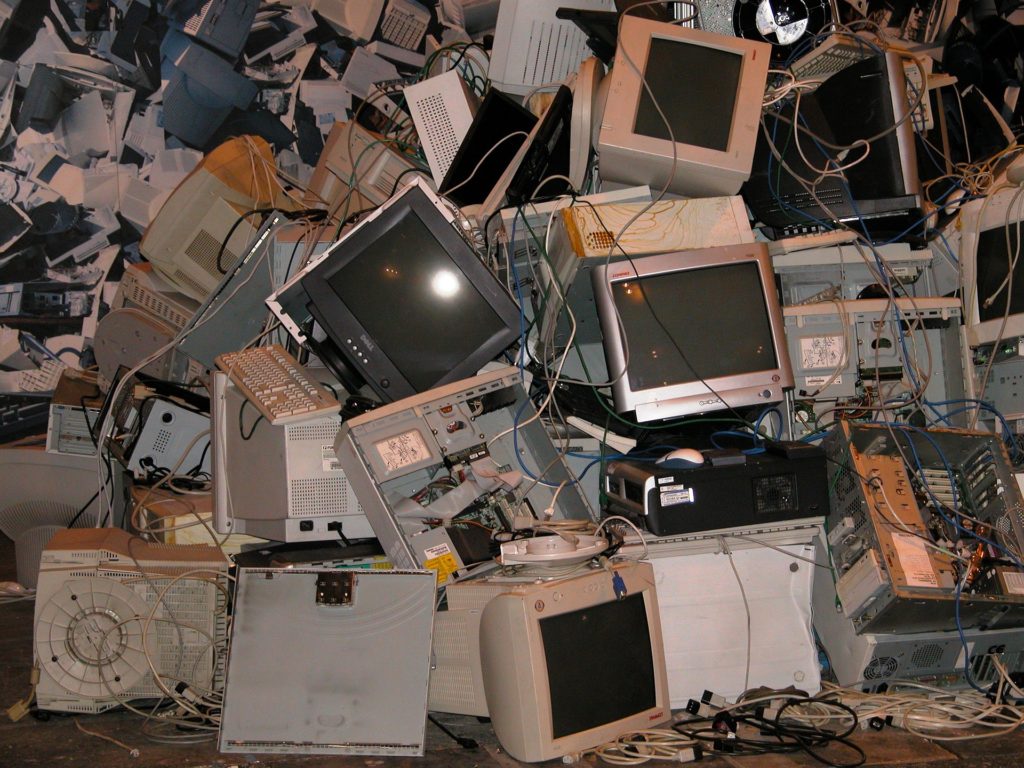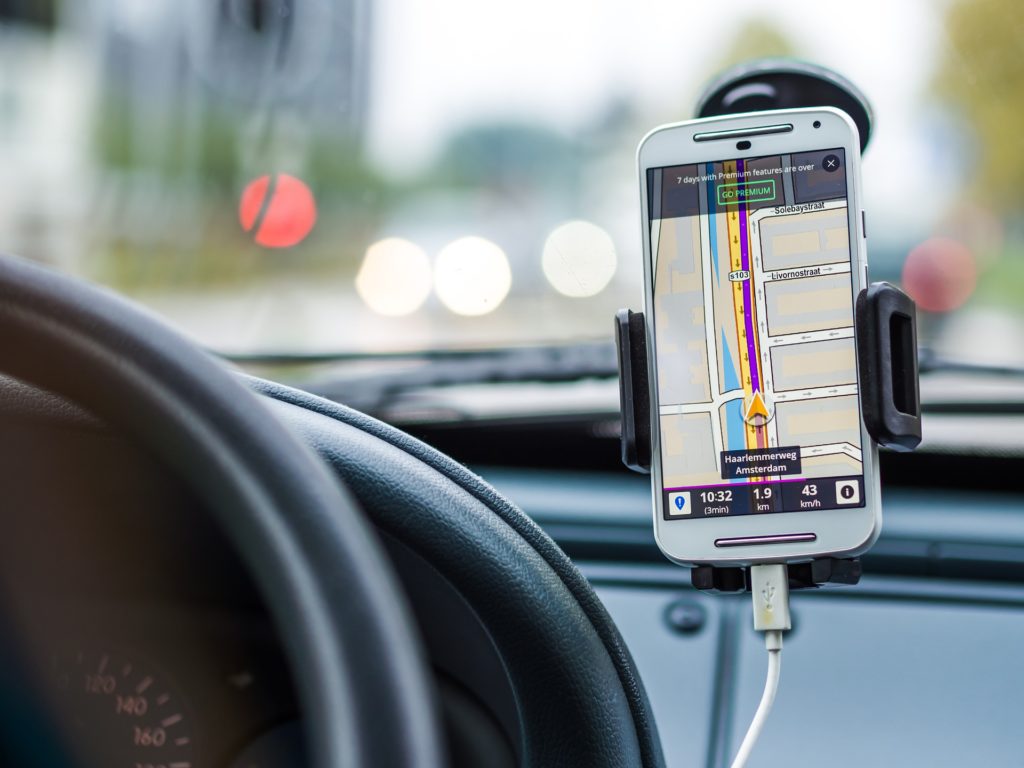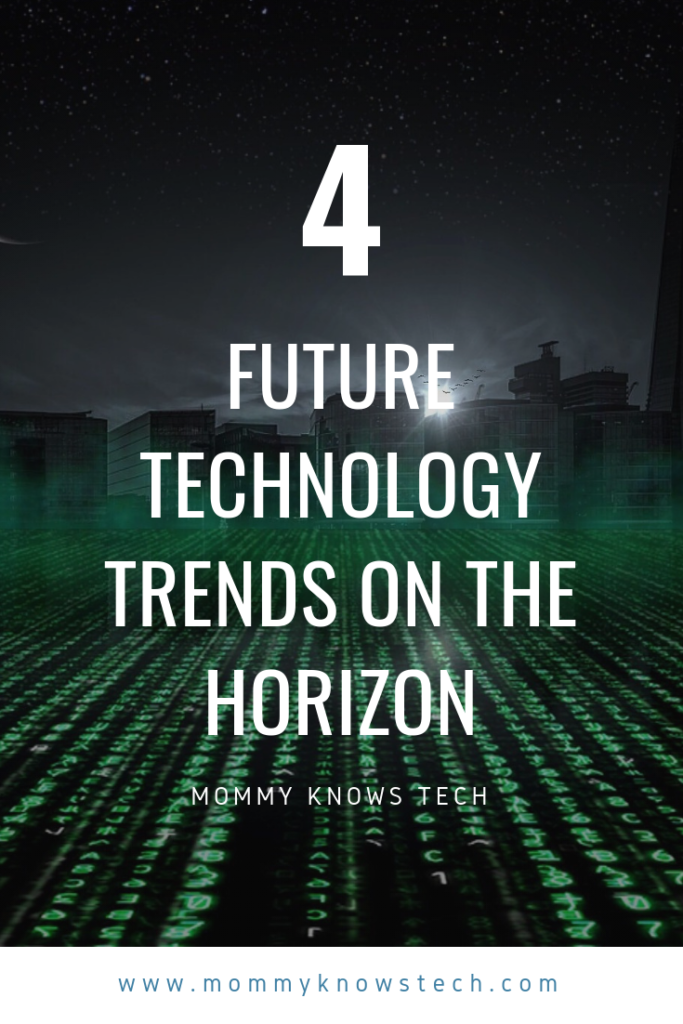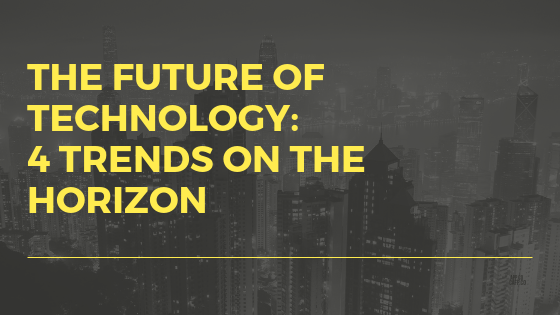This post may contain affiliate links, meaning at no additional cost to you I may earn a small commission when you click a product or company link. As an Amazon Associate I earn from qualifying purchases.
Recently a friend posed an interesting question on my Facebook feed: what will the future of technology look like?
This morning I woke up from a dream about an alien invasion. In my dream, we knew the invasion was coming because the aliens had warned us–we even knew the date it would happen. But being the plucky human race we are, we’d opted not to surrender. My friends and I were planning an uprising, but I woke up from the dream before I ever got a chance to see what our plans were.
While I love a good alien story, I don’t really believe the future will bring alien technology. So what might it actually bring?
I’m a child of the 90s. When I was growing up, we had fat CRT screens for our computer monitors and televisions. My dad had a huge phone in a bag in the car. My first cellphone was a Nokia brick phone. We still listened to cassette tapes.

Now we have flatscreens; cloud storage; connected smart gadgets to track our sleep, fertility, and activity; online music subscriptions; and smartphones whose screens we’d rather stare at than the faces of the people around us.
Technology changes at an astounding rate. What will the next 10 years look like for us and for our children? What new challenges will we face?
Here are a few not-so-distant possibilities.
Table of Contents
Coffee-Powered Cars

We already know coffee powers moms (as long as we remember to drink it after reheating it in the microwave for the 7th time today, amiright?) So why not cars and wood stoves?
London-based company bio-bean takes leftover coffee grounds and turns them into logs for woodstoves and pellets for heating buildings. They’ve also created a coffee-derived diesel fuel that’s already in use in London buses!
This isn’t the first time food waste has been used to power cars. One of my classmates in high school converted his diesel car to run on waste cooking oil from local restaurants. He said his car smelled vaguely of French fries.
Your car might already smell like French fries from the kids… It might be fun to add a little coffee to the mix.
It’s not publicly available yet, but this is a future technology I will definitely be interested in following. I’d be curious to know more about comparisons in cost and resources needed to manufacture vs. traditional fuels. And will coffee or electricity win out?
Self-Driving Cars

Speaking of advances in automobile technology, when will we have those autonomous cars everyone is talking about?
Well, in some places they already exist. In certain areas you can rent a self-driving taxi service to get you from point A to point B, and the service is expanding.
Can you imagine a world in which we no longer drive our own vehicles? It requires an immense amount of trust in our technology and those who control the technology to let a non-sentient entity control our transportation. I’m reminded of Minority Report, where Tom Cruise’s character is trying to escape imprisonment, but authorities control the car’s destination.
But the future is not only coming, it is here. Some challenges still exist for widespread use, however.
- It’s incredibly expensive. LIDAR, the technology that allows the cars to precisely detect their surroundings and prevent accidents is not cheap and still needs some work to manage smaller hazards, like potholes. But with an abundance of competitors on the job, including Apple, Lyft, automobile manufacturers, and a handful of startups, this problem may be quickly solved.
- The human factor. Although some self-driving services now operate without any human at all (in places like Phoenix, where the road system is basically a grid), other services currently available come with a human riding in the front seat, just in case. As it turns out, the human factor may be difficult to eliminate as long as the cars have to deal with other humans (pedestrians, cyclists, non-automated vehicles).
Sociolinguist Abdesalam Soudi says the language of driving is complicated and varies regionally. Driverless cars can interpret some human cues, such as standard cyclist hand signals, but human-computer interaction has always been a hard problem. It will be interesting to see how this problem is resolved.
Brainwave Passwords

Given the difficulty of choosing and remembering secure passwords, a password based on your brain’s reactions to a list of words could be a fascinating development.
Early tests of a system for identifying a person by their brain waves show the system is about 94% accurate. And brainwaves are more secure than other biometrics such as fingerprint or retina scan.
It may be a long time before we ever see this technology in the average person’s computer, though. And I wonder how often you’d need to update your brainwave. It seems as if a person’s “brainprint” would change over time as their life circumstances changed. “Baby,” for example, has a completely different meaning to a mother of a toddler than it does to a mom in the middle of the sleep-deprived newborn stage.
There would also be interesting implications if you needed to give someone temporary access to your device. You couldn’t just say, “Here’s my brainprint so you can log in.”
This will definitely be an interesting future technology to keep an eye on.
Who Needs a Smartphone?

The size of our computers has been getting smaller and smaller–we’ve come from the first computers that filled entire rooms to tiny chips that fit in our cellphones or smart watches.
Those computer “brains” keep getting smaller and more powerful, and Intel’s “futurist” (his job is literally to predict the future of technology) Brian David Johnson foresees that by the year 2020 we’ll have computer processors so small they’ll be essentially zero-sized.
Consider the implications for technology this small. When a computer has practically no size at all, anything can be a computer. Your water glass, your shoes, your favorite leggings. Our technology could be small enough to be truly, completely immersive. As Johnson says, “It’ll be like you’re living inside a computer. . . . Computing becomes invisible.”
While smartphones are currently ubiquitous, it’s likely they’ll eventually be replaced, and many of the people in the know believe the replacement will be on the order of a fully connected environment. We’ll “go from accessing the internet to living in the internet” (Jack Uldrich).
That prospect is fascinating, mind-boggling, and feels a little bit like the Matrix. Will it be safe? We already deal daily with the prospect of hackers; if everything you own is connected and interconnected, hacking effects could be truly devastating.
It’s also worth asking whether an increasingly digital landscape will strip away some of our humanness. How often do we avoid real-life personal interaction in favor of the digital world we’ve constructed? I know I’m not the only one who sometimes finds herself checking Facebook instead of talking to the person right in front of me.
Related: What Happened When I Deleted the Facebook App
Technology can be an amazingly useful tool, and we are likely to see our world becoming continually more connected. So the best thing we can do is to teach our children to be safe and responsible citizens, both on and offline.
What do you think the future of technology will look like?
Did you enjoy this post? Please consider sharing it with your friends and followers on social media!


